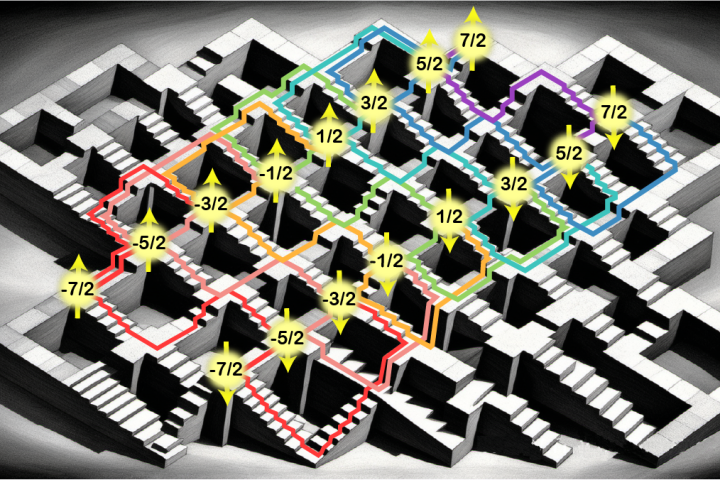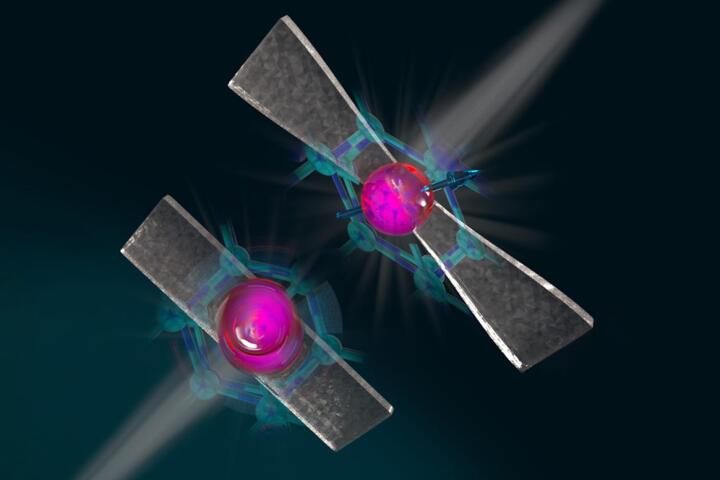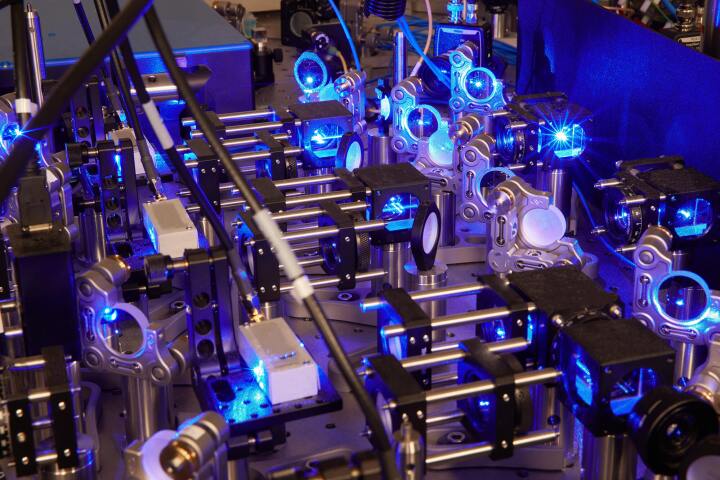Qubit
-
You can cram much more quantum processing power into a given space if you use four different ways to store data on a single atom, according to new research. The method unlocks more powerful quantum computers that are easier to control.
-
A DARPA program is claiming a major breakthrough in quantum computing. The Optimization with Noisy Intermediate-Scale Quantum devices (ONISQ) program has created the world's first quantum circuit with logical quantum bits (qubits).
-
Researchers are claiming a breakthrough in quantum communications, thanks to a new diamond-stretching technique they say greatly increases the temperatures at which qubits remain entangled, while also making them microwave-controllable.
-
Atom Computing has announced the first quantum computer to pass the 1,000-qubit milestone. The prototype, due to become available for use in 2024, leapfrogs IBM’s announcement of its new quantum computer platform expected in the next few weeks.
-
IBM has unveiled the most powerful quantum processor in the world – the Osprey, with a massive 433 quantum bits (qubits). The new chip headlines a raft of advances in quantum computers announced, as the company prepares for a massive leap next year.
-
Scientists have demonstrated a technique to allow quantum computers to store more information in photons of light. The team encoded eight levels of data into photons and read it back easily, representing an exponential leap over previous systems.
-
Dark matter makes up the majority of matter in the universe, but it’s strangely shy about making its presence known. Now physicists have designed a new test to search for signs of two candidate particles, using the quirky world of quantum technology.
-
Current-gen quantum computing "qubits" need to be kept incredibly cold – below 0.1 Kelvin (-273.05 °C/-459.5 °F). But new "hot qubits" developed at UNSW can work 15 times hotter, opening the door to radically smaller, cheaper quantum computers.
-
Scientists from Austria and China throw Schrodinger's Cat for a loop.
-
Practical quantum computers may be another step closer to reality, thanks again to graphene. The bits of information in quantum computers (qubits) can exist in two states at once, and now researchers have managed to record just how long that superposition state can last in a qubit made of graphene.
-
With the quantum computing race heating up, it feels like we’re hurtling towards quantum supremacy, when a quantum computer outperforms a classical one for the first time. Google has now unveiled Bristlecone, a new quantum computer chip with the record-setting power of 72 quantum bits (qubits).
-
The next big breakthrough for electronics is likely to be quantum computers, but there are still plenty of hurdles to jump before they become a reality. A team from Aalto University in Finland may have cleared one of those obstacles, developing a “nanorefrigerator” to help cool components down.
Load More











